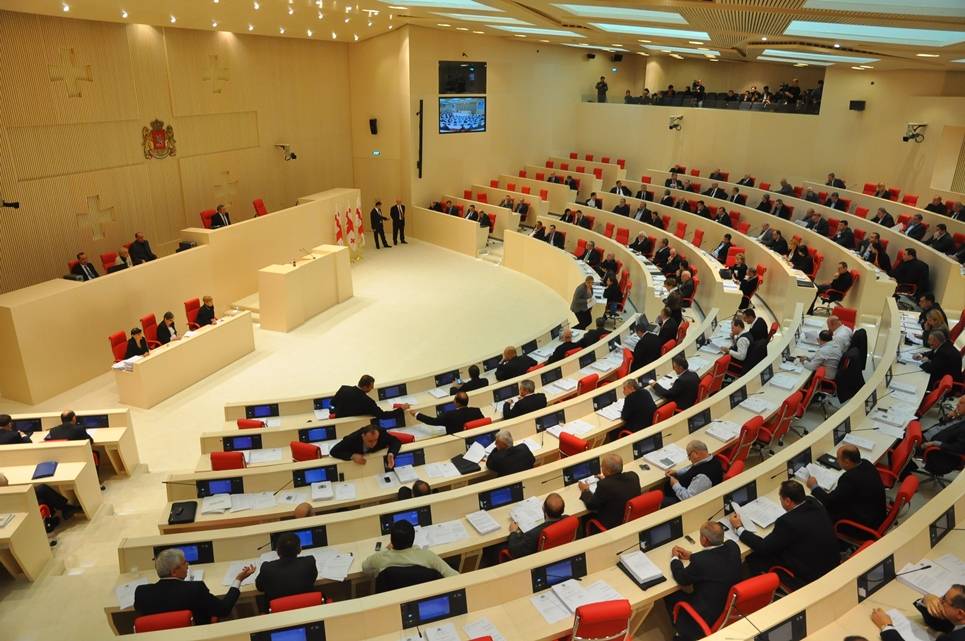საერთო ცხელი ხაზი +995 577 07 05 63

 Human Rights Education and Monitoring Center (EMC) calls for the legislators not to support the amendments to “the Law on Higher Education” proposed by the government during the second hearing in Parliament. Several entrées represent open and direct intervention into the autonomy of the higher education institutions and infringe the university independence. Proposed changes - that should be evaluated as a move backward in the process of ensuring University autonomy - are against the expectations and desires existing within the society for the governmental policies to be directed towards increasing the already restricted freedom of higher education institutions. Besides, it’s unacceptable, for the purposes of internally remedying the University life, intervention to be justified. This type of intervention into the independent space of a University is by itself a mistake and there is no way it can lead us to positive results.
Human Rights Education and Monitoring Center (EMC) calls for the legislators not to support the amendments to “the Law on Higher Education” proposed by the government during the second hearing in Parliament. Several entrées represent open and direct intervention into the autonomy of the higher education institutions and infringe the university independence. Proposed changes - that should be evaluated as a move backward in the process of ensuring University autonomy - are against the expectations and desires existing within the society for the governmental policies to be directed towards increasing the already restricted freedom of higher education institutions. Besides, it’s unacceptable, for the purposes of internally remedying the University life, intervention to be justified. This type of intervention into the independent space of a University is by itself a mistake and there is no way it can lead us to positive results.
Extremely negative attitude existing in the society with respect to the above-mentioned draft law can be justified and meant to be adequate when according to one of the rule proposed by the draft law the prime minister becomes an authorized person to appoint a rector in case the authority of the acting rector is halted prior to due date. In addition, according to this draft law the norm that grants this authority to the Academic Council is not being annulled/changed. Proposed changes also suggest introduction of new requirements for the position of a rector – the necessity to have the degree of a Doctor of Philosophy (PhD). Not fulfilling the requirement will cause the authority of the assigned person to cease within the 30 days from the law enactment.
We believe that the norm equipping the prime minister with the above mentioned right represents direct intervention of a government in the University autonomy, the concept of which itself excludes the existence of such links between university and government. Introducing additional qualification requirements for the people holding administrative positions within the University hastens the usage of the powers of prime minister and brings unpredictable changes from outside at the University. Enactment of these entrées in the draft law will deepen the existing problems related to University independence, the latter is most explicitly revealed in the existence of the Council of Regents, that guarantees government’s control over university’s administrative and financial management.
In this context the policies of Georgian government and the Ministry of Education and Science is alarming. The policies instead of ensuring the autonomy of a University, are directed towards restricting it. The government’s pursuance of this approach is unfortunately proved by its negative legal opinion on the draft law that was initiated by the parliamentary minority in February, aiming to abolish the Council of Regents. The legislative body shared the government’s opinion on the significance of Council of Regents, that on its hand cased the re-legitimization of the Council of Regents by the Parliament.
We think that the entrée that deprives all PhD students (with some exceptions) from the right to hold the position of an assistant-professor and to be involved in the teaching process, should become a topic of public discussions. On its hand it’s understandable that the government has the desire to increase its requirements towards the academic staff of the University, to establish higher standards. But it’s crucial the introduction of this novelty to be discussed based on its expediency, as, obviously, it will have big influence on the study process within the university and on the quality of teaching. It is unfortunate that the discussion – with the involvement of higher education institutions - has not taken place before the draft law initiation. Besides, this opportunity was also missed due to the parliament’s decision to hold an accelerated legislative process, which on its hand is a problematic issue, as well.
Human Rights Education and Monitoring Center (EMC) calls for the parliament not to support the proposed changes and to make steps towards ensuring the university independence. Besides, coming from the importance and complexity of the issue, it’s necessary public discussions to be initiated with the involvement of all interested parties. The formation of the mechanisms ensuring the higher education institutions’ independence shall happen with major involvement from the public.
The website accessibility instruction